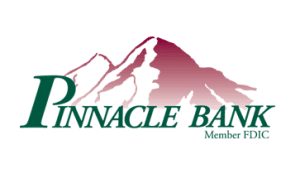Elberton, GA and Braselton, GA— Pinnacle Financial Corporation (“Pinnacle”), the parent holding company of Pinnacle Bank, and Independence Bank of Georgia (“Independence”), today jointly announced the signing of a definitive merger agreement pursuant to which Pinnacle will acquire Independence in a 100% cash transaction valued at approximately $32.8 million.
Management of each bank believes that the combined bank will achieve greater scale and diversity in markets, products and management compared to either bank as a standalone. The customers and shareholders of each of Pinnacle and Independence will benefit from the combined institution’s greater footprint and scale in the northeast Georgia communities it serves.
Independence operates two banking offices, one in Braselton and another in Gainesville, Georgia and will add approximately $184 million in assets, $136 million in loans, and $151 million in deposits to Pinnacle. Upon completion of this transaction, Pinnacle will have approximately $869 million in assets, $545 million in loans, and $757 million in deposits, based on financials reported as of March 31, 2016.
Commenting on the announcement, L. Jackson McConnell, Jr., President and Chief Executive Officer of Pinnacle, said, “We are excited to announce the combination of Pinnacle and Independence. This transaction will allow us to partner with an excellent financial institution that shares our commitment to serving our northeast Georgia communities. Our partnership with Independence furthers our strategy of targeted expansion in growing markets such as suburban Atlanta and continued organic growth in our current markets. We view the acquisition of Independence as a natural complement to our current growth initiatives and to be an opportunity to deliver our core services to a greater number of community bank customers. We look forward to welcoming our new customers, employees, and community members.”
Terry C. Evans, President and Chief Executive Officer of Independence, added, “We’ve known the Pinnacle leadership for many years and are delighted to partner with a bank that has served its customers and communities with distinction since 1934. Our customers will benefit by a significant expansion in the markets served by the combined bank, as well as the greater breadth and depth of products and services that can be offered as part of this combination. Pinnacle is a true community bank, and decisions will continue to be made locally by bankers who have a vested interest in our customers’ businesses and communities.”
The transaction, which is expected to close in the fourth quarter of 2016, has been unanimously approved by the Boards of Directors of both companies and is subject to customary closing conditions, including regulatory approvals, and approval from the shareholders of Independence. After the merger, Mr. McConnell will continue to serve as President and Chief Executive Officer of Pinnacle and Mr. Evans and Sid Chandler, a senior lending officer at Independence, will have leadership positions within Pinnacle, with the primary responsibility of overseeing the communities currently served by Independence.
Pinnacle was advised in the transaction by SunTrust Robinson Humphrey as financial advisor and Bryan Cave LLP as legal counsel. Independence was advised in the transaction by Banks Street Partners, LLC as financial advisor and Nelson Mullins Riley & Scarborough, LLP as legal counsel.
About Pinnacle Financial Corporation
Pinnacle Financial Corporation is a single-bank holding company headquartered in Elberton, Georgia. Chartered in 1934, Pinnacle Bank has offices in Clarke, Elbert, Franklin, Hart, Jackson, Newton, Oglethorpe, and Walton counties, Georgia. Pinnacle is a locally owned, independent community bank and offers a wide range of financial services. Visit www.pinnaclebank.com for more information.
About Independence Bank of Georgia
Chartered in 2008, Independence Bank of Georgia is a locally owned, independent community bank providing personal and business banking services through its banking offices in Braselton and Gainesville, Georgia. Small business banking is at the forefront of services offered at Independence. For further information, visit www.ibankga.com
Additional Information about the Merger
In connection with the proposed merger, Independence will prepare a proxy statement for a special meeting of Independence’s shareholders to approve the merger. It is anticipated that the proxy statement and other relevant materials (when they become available) will be mailed to shareholders in the third quarter of 2016.
Shareholders are urged to read the proxy statement and the other relevant materials when they become available before voting on the merger.





 Born and raised in Georgia, Dewayne Stone has a deep passion for putting his client’s needs first. He brought that passion to Pinnacle Bank because of their commitment to remain professional, accurate, and honest within the communities they serve.
Born and raised in Georgia, Dewayne Stone has a deep passion for putting his client’s needs first. He brought that passion to Pinnacle Bank because of their commitment to remain professional, accurate, and honest within the communities they serve.











